HS-LS4-4
Construct an explanation based on evidence for how natural selection leads to adaptation of populations.
-
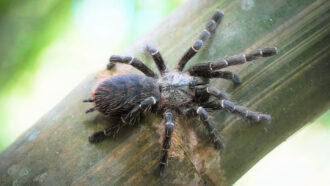 Animals
AnimalsNewfound ‘bambootula’ spider lives inside bamboo stems
A YouTuber discovered a new tarantula genus living in bamboo near his home in Thailand. It’s the only tarantula known to choose such a habitat.
By Becki Robins -
 Archaeology
ArchaeologyOur species may have reached Europe while Neandertals were there
Archaeological finds from an ancient French rock-shelter show periodic settlements by both populations, just not at the same time.
By Bruce Bower -
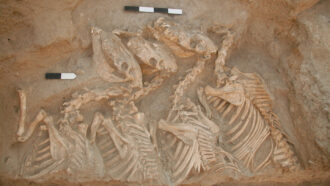 Animals
AnimalsMysterious kunga is the oldest known human-bred hybrid animal
People bred these animals — part donkey, part wild ass — some 4,500 years ago, probably for use in fighting wars.
By Jake Buehler -
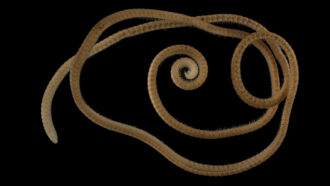 Animals
AnimalsScientists discover the first true millipede
The newfound deep-living species tunnels belowground using a whopping 1,306 legs!
-
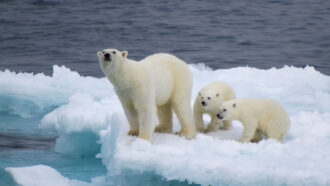 Life
LifeScientists Say: Adaptation
This word refers to a feature of a living thing that helps it better survive in its environment — or the process of that feature evolving in a population.
-
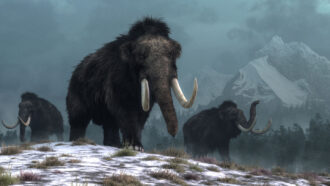 Animals
AnimalsWill the woolly mammoth return?
Scientists are using genetic engineering and cloning to try to bring back extinct species or save endangered ones. Here’s how and why.
-
 Animals
AnimalsCloning boosts endangered black-footed ferrets
A cloned ferret named Elizabeth Ann brings genetic diversity to a species that nearly went extinct in the 1980s.
-
 Microbes
MicrobesExplainer: Virus variants and strains
When viruses become more infectious or better able to survive the body’s immune system, they become a type of variant known as a strain.
By Janet Raloff -
 Genetics
GeneticsJust a tiny share of the DNA in us is unique to humans
Some of these tweaks to DNA, however, may have played a role in brain evolution.
-
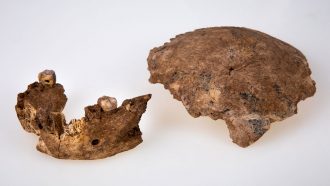 Archaeology
ArchaeologyFossils unearthed in Israel reveal possible new human ancestor
They come from a previously unknown Stone Age group that may represent a complex mashup of early members of our genus Homo.
By Bruce Bower -
 Health & Medicine
Health & MedicineWill we all need COVID-19 booster shots?
Experts say not yet, but booster vaccines may be coming as new SARS-CoV-2 virus variants keep emerging.
-
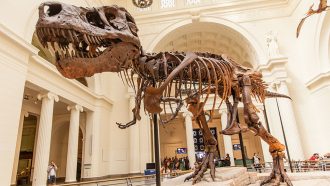 Fossils
FossilsScientists Say: Dinosaur
Dinosaurs emerged between 243 and 233 million years ago. While some died out 66 million years ago, others are still with us — birds.